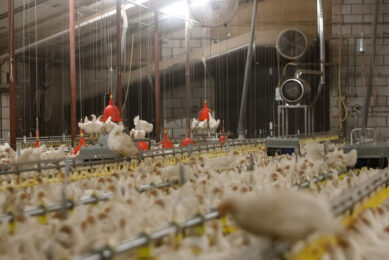JS West installs US’s first enriched colony housing system
JS West & Company, a family owned egg farming business in California, has installed and opened the first enriched colony housing system for layer hens in the United States, and American Humane Certified, the nation’s largest and oldest third party certification of farm animal welfare, announced that it has certified the new system at JS West.
American Humane Certified recently announced that enriched colony housing meets its science-based standards for humane housing and can be certified. It is an additional option to producers seeking alternatives to conventional cages. Enriched colony housing and cage free both meet the American Humane science-based standards. Enriched colony systems provide hens with a wide range of behavioral opportunities such as perching, nesting and dust bathing. These natural behaviors are essential to the well-being of layer hens, according to recognized poultry animal scientists.
“The enriched colony housing system, proven in the European Union for more than 10 years, provides a humane alternative to conventional cages,” said Jill Benson, vice president of JS West. “We are honored and proud to be the first to install this new humane housing solution and be certified by American Humane. Based upon the language of Proposition 2 that states a bird must be able to sit down, stand up, turnaround and extend her limbs without touching another bird or the sides of an enclosure, this solution meets the requirements regarding the housing of laying hens.”
The Big Dutchman enriched colony housing system, installed in the JS West barn, has been awarded the American Humane Association’s prestigious seal of approval for its equipment design that promotes the welfare of laying hens.
“Throughout the world over 30 million laying hens are being raised in these enriched colony housing systems,” said Terry Pollard, Big Dutchman’s representative. “These systems promote the healthiest environment for laying hens on a commercial level. The birds have the ability to move about freely while at the same time enjoy the comfort and safety associated with being a part of a colony group of birds.”
Source: J S West & Company












